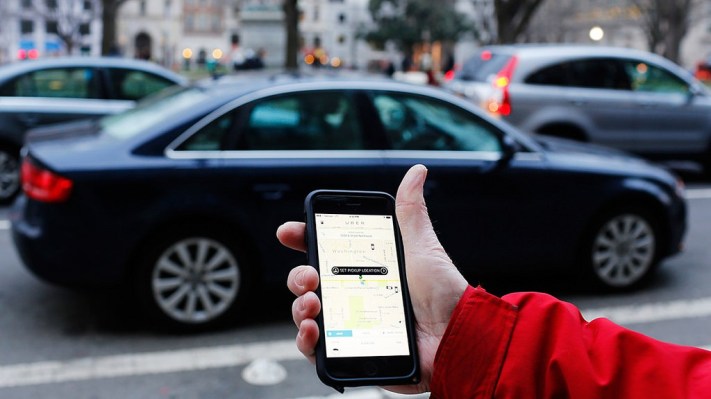A controversial bill that would have given gig workers the right to collectively bargain with the tech companies they work for stalled in the California legislature today, meaning that workers will have to wait at least another year for the opportunity to bargain for higher wages, paid sick leave, and other perks.
Uber drivers, TaskRabbit errand runners, Postmates couriers — they’re all members of the gig economy that’s behind half the apps on your phone. But these workers are not considered employees of the companies they work for; they’re classified as independent contractors who work for nobody but themselves. While this gives gig workers the freedom to set their own schedules, it deprives them of the benefits like healthcare, paid sick days, and minimum wage guarantees that come with traditional employment.
In California, legislators want to change that structure by giving gig workers the right to collectively bargain with companies like Uber, a right that’s limited to employees under current law. Just yesterday, it seemed like gig worker unions were on the horizon: a bill that would require tech companies to meet and negotiate with organized groups of independent contractors passed the California Assembly Labor and Employment Committee with a strong 5-1 vote.
But today, California Assemblywoman Lorena Gonzalez, who authored the bill, pulled it from its next committee vote at the Assembly Judiciary Committee, effectively killing the bill for this legislative session.
The decision to pull the bill is a surprising about-face for Gonzalez, who rose to her position in the legislature through the labor movement and is a staunch union advocate. A spokesperson from Gonzalez’s office said the bill, known as the California 1099 Self-Organizing Act or AB 1727, contained “a number of untested legal theories” and claimed the assemblywoman’s decision was motivated by the desire “to really explore all the legal issues that could be involved with this bill.”
So what went wrong?
Since the bill was drafted in December, unions and businesses alike have raised antitrust concerns about the legislation. Workers in the gig economy have never been allowed to collectively bargain, and its possible that allowing them to do so would violate federal antitrust law. Rather than allowing independent contractors to form their own bargaining organizations, unions would prefer for gig workers to be reclassified as employees so they can legally join unions. And sharing economy companies like Uber rely on gig workers to keep their costs low. It seems that those concerns reached the Assembly Judiciary Committee and Gonzalez pulled the bill when it became clear that the Committee wouldn’t allow it to move forward.
Sacramento political consultant Richie Ross, who was a sponsor of the bill, told TechCrunch the hearing in the Judiciary Committee was unexpected — he and Gonzalez had hoped the bill would go straight to the Assembly floor.
“This is so uncharted. Nobody’s ever done anything like this,” Ross explained. “We don’t need to go out of our way to make something this new more controversial. Because it’s new and uncharted, it naturally has elements of controversy.”
However, Ross doesn’t believe the legislation would violate antitrust law. He says the Clayton Act, a century-old law that governs unions, doesn’t place the same restrictions on contractors who are selling their own labor as it does on those who are selling commodities. Because a Postmates courier isn’t actually selling you your lunch, she’s just selling her labor as she carries it from the restaurant to your doorstep, Ross thinks such workers can unionize without violating antitrust law. But he and his allies didn’t want to push the bill forward without being sure they were on strong legal ground: “We don’t want to bring the bill to the floor of the Assembly until it’s more cooked,” he said.
Gonzalez said in a statement announcing her decision to table the legislation that she would continue to engage with Judiciary Committee leader Mark Stone to resolve the legal issues in the bill. However, she seemed to cast doubt on her own work, saying, “Assembly Bill 1727 may or may not be the correct answer.”
“The issue is complex. The law is untested. The challenge is essential,” Gonzalez added.
Ross says he and Gonzalez hope to redraft the bill and get a final version signed by Governor Jerry Brown before he leaves office in 2019.
In the meantime, Uber drivers may win the right to unionize in court — a group of drivers is suing Uber to be reclassified as employees. If they win, approximately 160,000 drivers would earn the right to join a traditional union. The lawsuit is set to go to trial this summer.
